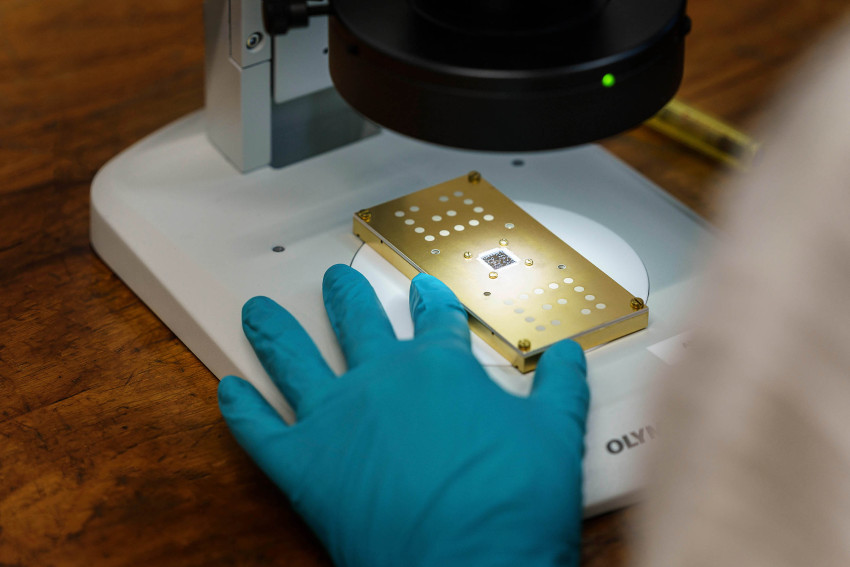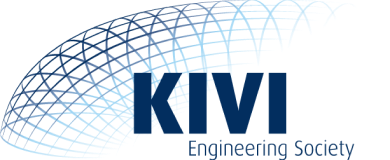
English
ICT
Quantum Leap Event at KIVI
Quantum technology could soon be moving from theory to practice — if that happens, the impact for engineering and society will be profound. Join us in Den Haag for an evening full of cutting-edge talks, a live demo on the Quantum Inspire platform, and networking with peers and experts!
Why attend?
- Hear directly from world-leading experts including Leo Kouwenhoven (QuTech)
- Learn about the current state of play
- See a live Quantum Inspire demo with code you can try yourself afterwards
- Learn how quantum algorithms and AI may transform the future of computing
- Connect with fellow professionals during dinner and networking drinks
- And ask yourself… Could quantum effects such as entanglement or pure randomness one day help us understand the mysteries of free will or even consciousness…?
Program
17:00 – Start
- Leo Kouwenhoven: Introduction to Quantum 2.0
This year UNESCO is celebrating 100 years of quantum science and technology. The past 100 years gave us the theory of quantum mechanics as well as applications like the laser, MRI and the transistor. We are now entering a new quantum era 2.0, where the fundamental concepts of superposition and entanglement are being exploited for computation and communication. We will introduce the quantum concepts and the basic principles for quantum computation. - Christian Andersen: Building the Quantum Computer: Hope, Hype, and Hard Engineering
Quantum computing promises to revolutionize how we tackle some of the hardest problems in science and technology, from simulating complex molecules to optimizing large-scale systems. However, behind the headlines and the hype lies an extraordinary engineering challenge: building reliable quantum hardware. Unlike classical computers, where modern foundries produce industrial scale chips in using established processes, quantum computing is still very much a race between diverse approaches. Superconducting circuits, trapped ions, spins in semiconductors, photons, and neutral atoms each bring unique advantages and equally formidable hurdles when it comes to coherence, control, and scaling. In this talk, Christian will provide an accessible overview of some of these platforms, explaining how they work, what progress has been made, and what obstacles remain including how the research at QuTech is addressing the challenges. By exploring both the promise and the difficulty of building a quantum computer, the talk aims to give a realistic picture of where the field stands today, and what it might take to make quantum computing a practical reality.
18:00 – Dinner break (simple meal provided)
18:30 – 19:30 – Sessions
- Vivek Sinha: Live Quantum Demo
Vivek will give a 5-minute hands-on demo of the Quantum Inspire platform, showing how to build and run quantum circuits in real time. Expect a simple but powerful walkthrough of key concepts:
A qubit in superposition of |0⟩ and |1⟩ states and a quantum entangling circuit (Bell pair) All code will be shared via a Google Colab notebook, so attendees can later experiment with quantum circuits themselves. - Stefano Bosco: Quantum Computing and Algorithms
Stefano will provide an introduction and overview of the current state of the art in quantum computing. His talk will cover the fundamental algorithms and highlight recent advances in hardware, with particular emphasis on the pioneering efforts at QuTech. - Ivana Nikoloska: Quantum AI
The ability to learn from examples is a central property of (quantum) machine intelligence. This capacity to improve performance without being explicitly programmed for every task is what distinguishes intelligent systems from traditional software. This talk will introduce the fundamental principles of machine learning with quantum computers which leverages unique quantum phenomena such as superposition and entanglement. We will review the state-of-the-art and discuss potential opportunities in the field.
19:30 – Closing & Drinks
